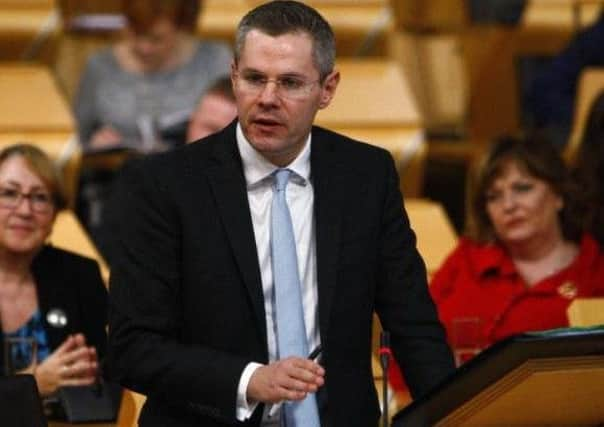Leader comment: As Brexit looms, Scotland's low GDP growth is worrying


It’s the economy, stupid. That was the unofficial slogan used by Bill Clinton during his first successful presidential campaign and it should probably be the mantra for politicians at any time and in any place.
Economic competence and electoral success go hand in hand – particularly when times are tough.
Advertisement
Hide AdAdvertisement
Hide AdSo the Conservatives’ calculation that our public services will miss out on a whopping £2.1 billion over the next four years because of the downward revision of Scotland’s growth forecasts could actually be the real story of Finance Secretary Derek Mackay’s new draft budget.
The historic decision to make major use the Scottish Parliament’s “tartan tax” powers for the first time, increasing income tax overall while cutting rates for lower earners, may have grabbed the initial headlines. But, as The Scotsman noted yesterday, it is economic growth – rather than raising relatively small amounts of extra tax – that has the potential to end austerity in Scotland. The Scottish Fiscal Commission is predicting the growth in Scotland’s GDP will be just 0.7 per cent next year. In comparison, the UK as a whole is expected to grow by nearly double that figure next year – 1.3 per cent. And, when this UK forecast was revealed, many commentators expressed shock that the figure was so low.
One can only hope the commission decided to err on the side of caution to a significantly greater degree than the Office for Budget Responsibility, which produced the British figures.
Some of Scotland’s economic woes are structural – the North Sea Oil industry has been suffering from low oil prices for some time, while the construction sector has seen an end to major projects like the Queensferry Crossing.
So it will not be a simple matter for the Scottish Government to provide a shot in the arm that makes a noticeable difference.
Of course, Brexit – a process almost entirely out of Holyrood’s control – overshadows all these economic forecasts and cannot be accurately taken into account until the full details of the trade deal with the European Union are known.
No deal or a bad deal could tip Scotland into a recession, possibly a severe one, as the resulting turbulence damages business confidence. And that would further increase pressure on public services, deepen austerity and increase the general sense of disquiet over stagnant wages and rising living costs.
